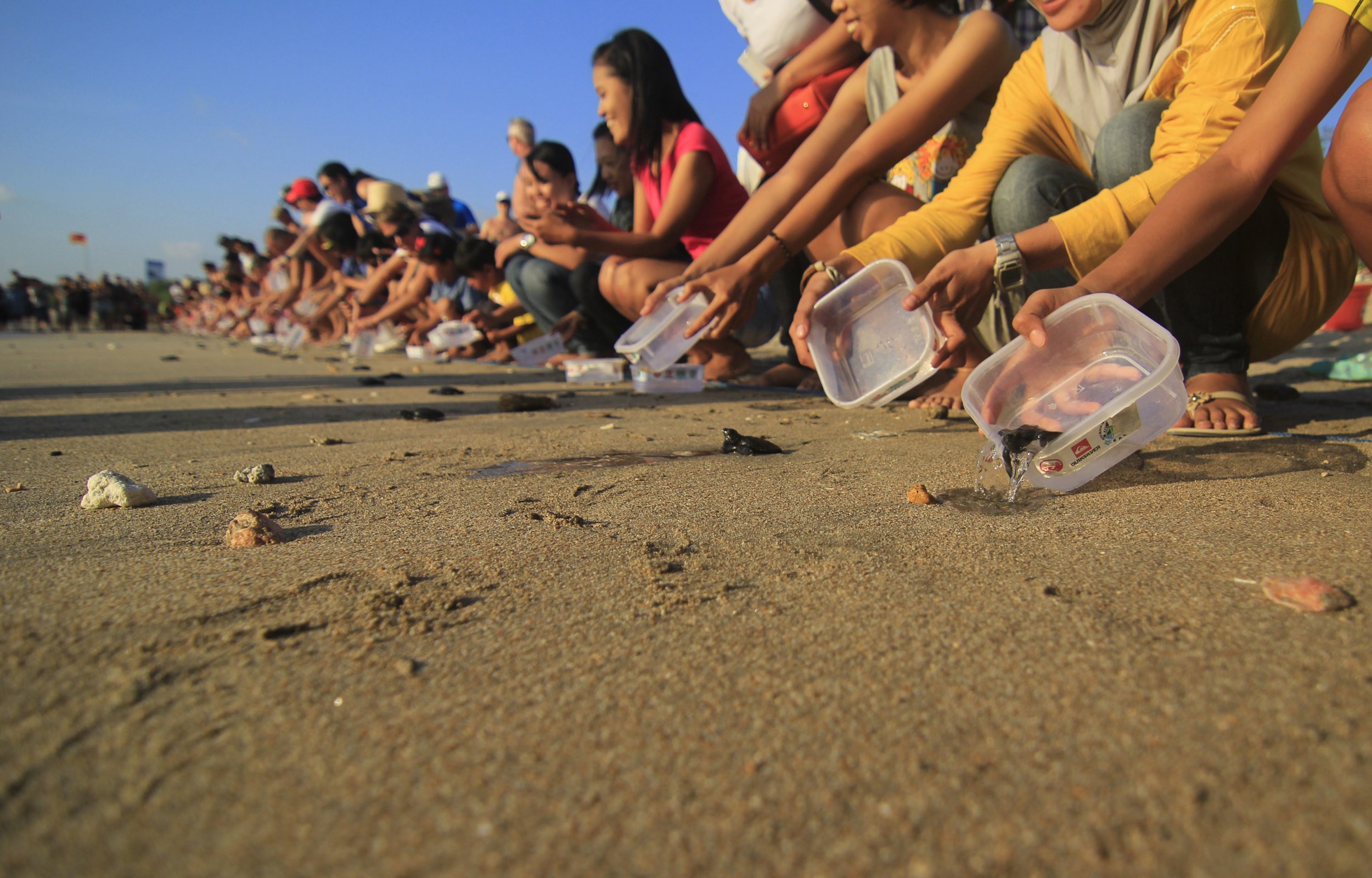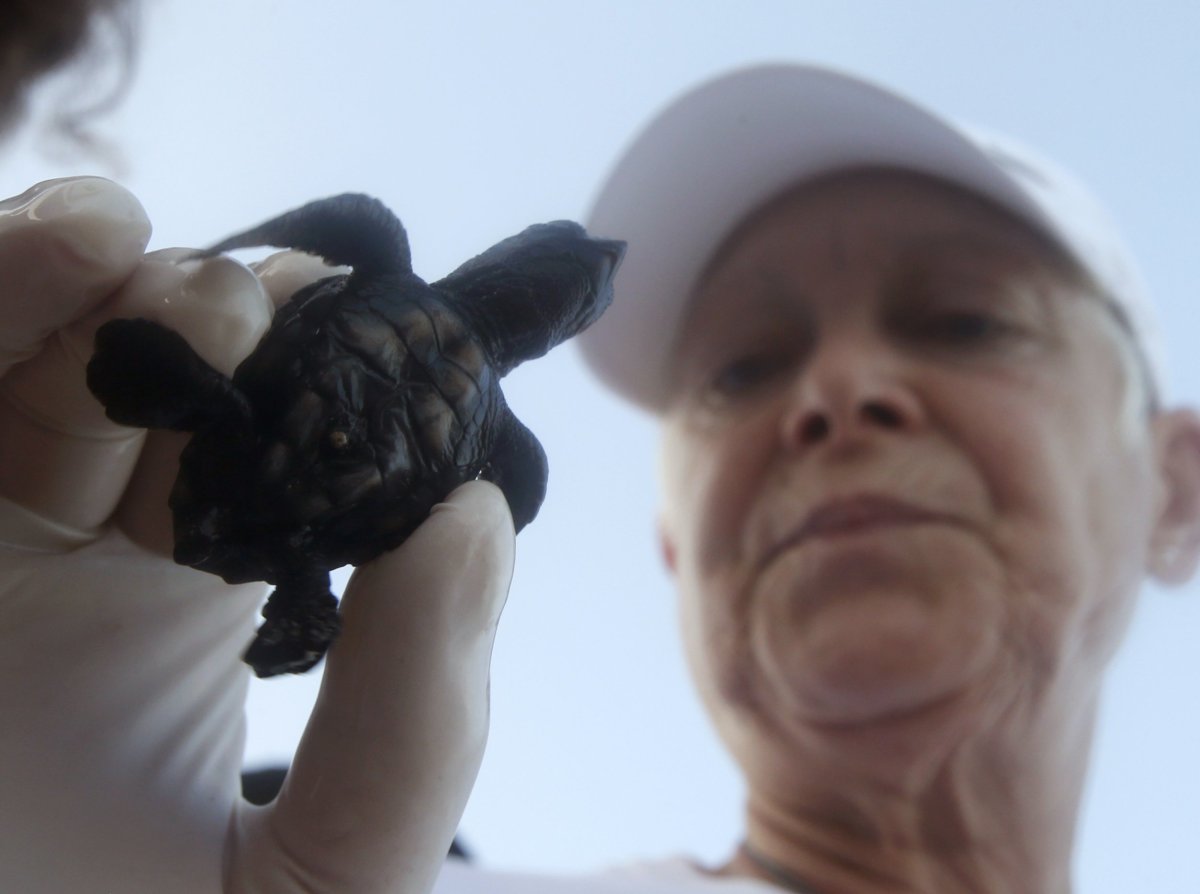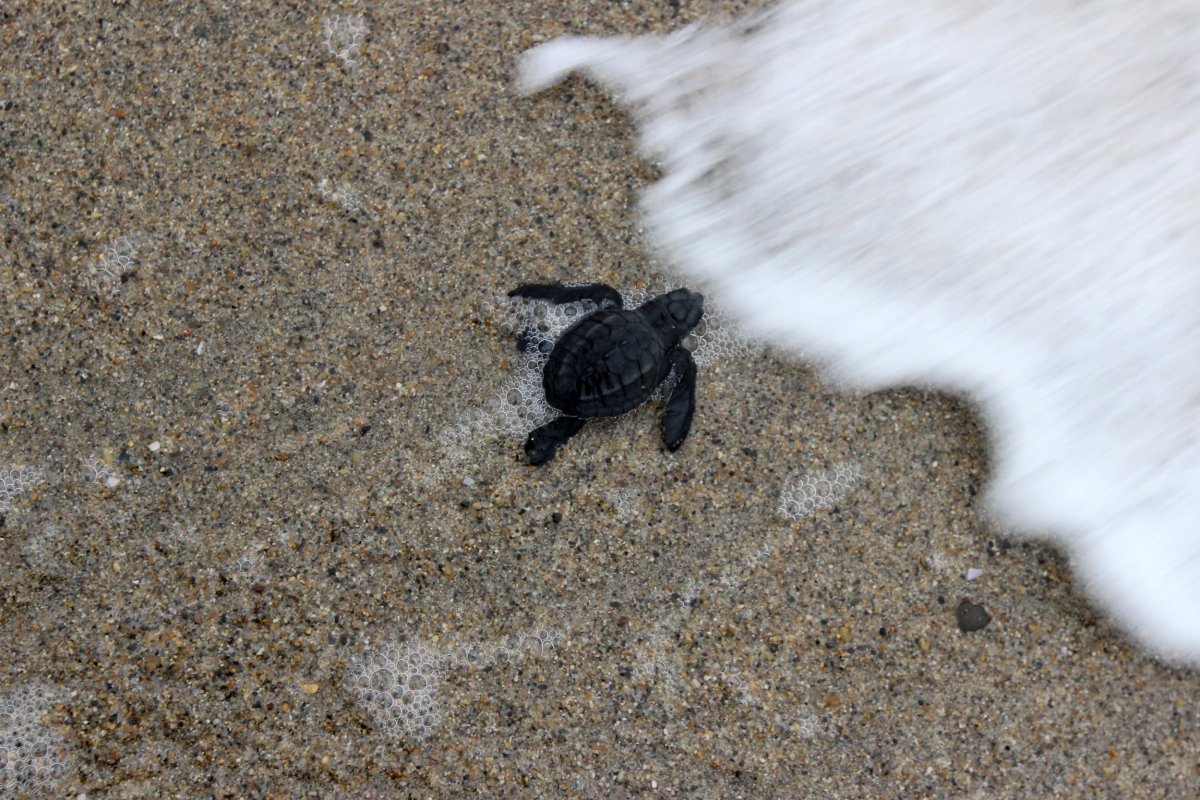
It's rare, but it happens: There is some good news to share about the environment. Once endangered, sea turtle populations are on the road to recovery around the world thanks to local conservation efforts.
Currently, six of the seven sea turtle species are listed as vulnerable, endangered or critically endangered on the International Union for Conservation of Nature's Red List. (Critically endangered animals are just one step away from being extinct in the wild.) But new research published in Science Advances Wednesday found that the world's populations of seven types of sea turtles are increasing across almost all of the 58 geographic regions studied.

Though reports of population increases and decreases have been published before, ecologist Antonios Mazaris of Aristotle University of Thessaloniki, Greece, noted that his data set was particularly comprehensive.
Mazaris's results didn't surprise David Godfrey, a member of the IUCN's Marine Turtle Specialist Group and executive director of the Sea Turtle Conservancy. In Florida, where the organization is headquartered, some people live on beaches where the turtles make their nests and have watched the populations grow. In Hawaii, more and more sea turtles are found napping on beaches.
"People are seeing lots and lots more turtles," Godfrey told Newsweek. "You can't continue to say that the sky is falling when it's clear that good things are being done."
There are plenty of reasons people might fall in love with turtles. They look like they're crying when they lay eggs, noted George Balazs, who co-chairs the IUCN's Marine Turtle Specialist Group for the Pacific islands. "They struggle. They're survivors," he said. They've become tourist attractions in some regions, for better or for worse. Of the 150 themed license plates offered by the state of Florida, the one with sea turtles is the second most popular choice "by a wide margin," Godfrey said. Only the University of Florida can claim more vehicular displays of affection.
But turtles are more than just cute sea creatures. They also serve as canaries in the ocean's ecological coal mine. Sea turtles often reflect the health of the ocean and the coasts, Godfrey said. A healthy turtle population is a bit of good news for the wider environment.
"You're talking about an animal that is at the top of its food chain in whatever ecological niche it happens to inhabit," Godfrey said. "How they're doing tells us a great deal about all of the biological diversity beneath them on the food chain. If you have healthy turtle populations, it generally tells you a good deal about the health of the marine environment and the coastal environment as a whole."

Researchers don't know what exactly is helping the turtles, but Mazaris has two hypotheses. Turtles need decades to reach sexual maturity, he said, so the effects of conservation efforts that began long ago may finally be paying off. Not only are more nests and hatchlings protected from poachers, but they're also living long enough to mature into adults that can have baby turtles of their own, thanks to new fishing gear that prevents hunters from accidentally catching them.
Just because the overall picture is rosier doesn't mean it's time to relax: Some populations are declining, and still others seem to be unhealthy. Many young turtles along the Florida coastline have tumors, Godfrey noted.
One green sea turtle died earlier this year from eating coins thrown into its pond for good luck. Poachers and hunters may still be active in some areas, posing a threat not just to turtles but, in rare cases, to conservationists too.
Finally, there's another threat to turtles that might come from Washington, D.C., Godfrey noted, if the politicians don't see signs of progress. Legislators could decrease funding needed to protect these and many other animals or remove turtles from the list of protected animals.
"You have an administration at the federal level now and members of Congress who would like to diminish the strength of the Endangered Species Act," he said. "There have been complaints for years that it's ineffective, it doesn't work, we're wasting money."
Spreading the world that these policies are working might push back against those perceptions, but Godfrey hopes the good news won't convince people that all the needed work has been done. "It's something we should acknowledge and be trumpeting," he said. "But it doesn't take long for the trend in their population to start going the wrong way."
Uncommon Knowledge
Newsweek is committed to challenging conventional wisdom and finding connections in the search for common ground.
Newsweek is committed to challenging conventional wisdom and finding connections in the search for common ground.
About the writer
Kate Sheridan is a science writer. She's previously written for STAT, Hakai Magazine, the Montreal Gazette, and other digital and ... Read more
To read how Newsweek uses AI as a newsroom tool, Click here.








